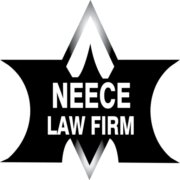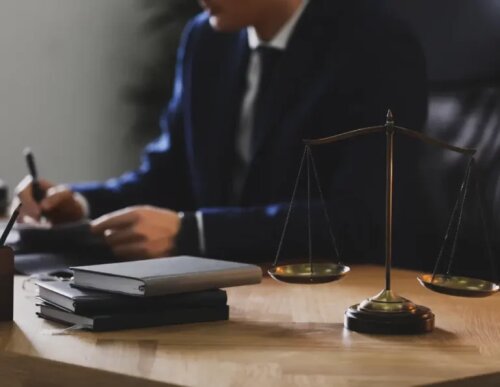Best Child Abuse Lawyers in North Carolina
Share your needs with us, get contacted by law firms.
Free. Takes 2 min.
Free Guide to Hiring a Family Lawyer
Or refine your search by selecting a city:
List of the best lawyers in North Carolina, United States
About Child Abuse Law in North Carolina, United States
Child abuse is a serious criminal and civil offense in North Carolina. State law defines child abuse as any act or failure to act by a parent, guardian, caretaker, or another responsible person that results in serious harm, risk of harm, or exploitation of a child under the age of 18. Child abuse can take many forms, including physical abuse, emotional abuse, sexual abuse, neglect, and other maltreatment. The primary purpose of North Carolina’s child abuse laws is to protect children from harm, ensure their safety and well-being, and hold perpetrators accountable through the civil and criminal justice systems.
Why You May Need a Lawyer
Child abuse cases are emotionally charged and legally complex. Individuals may require the help of an experienced lawyer in situations such as:
- Facing accusations or charges of child abuse, which can result in criminal prosecution, protective orders, or loss of parental rights
- Seeking to protect a child they believe is being abused or neglected by a parent, guardian, or caretaker
- Involved in custody disputes where child abuse allegations arise
- Responding to investigations from social services or law enforcement
- Needing guidance through Child Protective Services (CPS) procedures or court hearings
- Ensuring compliance with mandatory reporting requirements as a professional or concerned individual
Legal representation can help protect your rights, guide you through investigations, and ensure the best outcome for the child’s safety and welfare.
Local Laws Overview
North Carolina’s statutes and regulations include several provisions specifically addressing child abuse. Key aspects of local law include:
- Mandatory Reporting: Any adult who suspects that a child is being abused, neglected, or dependent is required by law to report their concerns to the local Department of Social Services.
- Definitions: State law (General Statutes 7B-101) defines child abuse as causing or permitting serious physical injury, emotional injury, sexual abuse, or encouraging use in sexual activity, or allowing another to do so.
- Powers of Social Services: The county Department of Social Services is tasked with investigating all allegations and may seek emergency custody if a child is deemed unsafe.
- Criminal Charges: Child abuse can be charged as a misdemeanor or felony, depending on the severity and circumstances, including physical injury, sexual abuse, or death resulting from abuse.
- Civil Court Proceedings: Abuse may prompt civil actions such as custody modifications, restraining orders, or termination of parental rights.
- Protections for Reporters: Individuals who make reports in good faith are generally protected from civil or criminal liability.
Frequently Asked Questions
What qualifies as child abuse in North Carolina?
Child abuse includes physical injury, sexual abuse or exploitation, emotional mistreatment, or serious neglect of a child by a parent, guardian, or caregiver.
Who is required to report suspected child abuse?
All adults, regardless of profession, are legally obligated to report suspected child abuse, neglect, or dependency to the county Department of Social Services.
How do I report child abuse in North Carolina?
Contact the local Department of Social Services in the child’s county or call law enforcement. Reports can be made anonymously.
What happens after a report is made?
Social Services will screen the report and, if warranted, conduct an investigation. They may interview the child, family, and other relevant people and can take steps to ensure the child’s safety.
Can someone lose parental rights because of child abuse?
Yes, confirmed cases of severe abuse or neglect may lead to the termination of parental rights through a court process.
What are the potential criminal consequences of child abuse?
Depending on the circumstances, charges may range from misdemeanors to serious felonies with penalties including fines, mandatory counseling, prison time, or registration as a sex offender in cases of sexual abuse.
Are false accusations of child abuse a crime?
Intentionally making a false report of child abuse can lead to criminal charges and civil liability.
Can family members be charged with child abuse?
Yes, anyone responsible for the care of a child, including parents, guardians, relatives, or household members, can be charged if they commit or allow abuse.
How does child abuse affect custody and visitation?
Courts will consider abuse allegations when determining custody or visitation and may restrict, supervise, or deny visitation to protect the child.
What rights do accused individuals have?
Anyone accused of child abuse has the right to legal representation, to participate in all proceedings, and to contest the allegations in court.
Additional Resources
- North Carolina Department of Health and Human Services (DHHS): Provides information on child protection, reporting abuse, and support services.
- County Department of Social Services (DSS): Handles reports, investigations, and protective services for children throughout North Carolina.
- North Carolina Coalition Against Domestic Violence: Offers support and advocacy for families affected by abuse, including children.
- Legal Aid of North Carolina: Provides free or low-cost legal advice and representation.
- North Carolina State Bar Lawyer Referral Service: Helps individuals find qualified lawyers.
Next Steps
If you or someone you know is involved in a child abuse situation or facing allegations, it is important to act quickly to protect your rights and the welfare of any children involved. Consider the following steps:
- Contact the county Department of Social Services or law enforcement if a child is in immediate danger.
- Consult with a qualified attorney who specializes in child abuse or family law in North Carolina.
- Gather and preserve any relevant documents, communications, or evidence.
- Prepare to participate fully in all investigations and legal proceedings.
- Utilize resources for counseling, support, or advocacy services as needed.
An experienced lawyer can help you understand your legal options, represent you during investigations or court hearings, and work toward the best possible outcome for you and your family.
Lawzana helps you find the best lawyers and law firms in North Carolina through a curated and pre-screened list of qualified legal professionals. Our platform offers rankings and detailed profiles of attorneys and law firms, allowing you to compare based on practice areas, including Child Abuse, experience, and client feedback.
Each profile includes a description of the firm's areas of practice, client reviews, team members and partners, year of establishment, spoken languages, office locations, contact information, social media presence, and any published articles or resources. Most firms on our platform speak English and are experienced in both local and international legal matters.
Get a quote from top-rated law firms in North Carolina, United States — quickly, securely, and without unnecessary hassle.
Disclaimer:
The information provided on this page is for general informational purposes only and does not constitute legal advice. While we strive to ensure the accuracy and relevance of the content, legal information may change over time, and interpretations of the law can vary. You should always consult with a qualified legal professional for advice specific to your situation.
We disclaim all liability for actions taken or not taken based on the content of this page. If you believe any information is incorrect or outdated, please contact us, and we will review and update it where appropriate.
Browse child abuse law firms by city in North Carolina
Refine your search by selecting a city.















